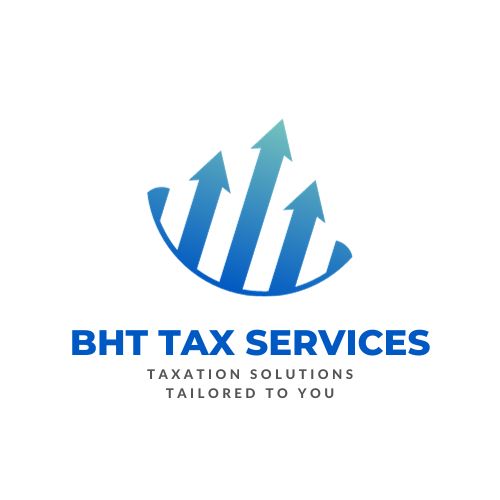Navigating the world of taxes as a freelancer or gig worker can be overwhelming. With unique income streams and complex regulations, understanding how to manage your taxes effectively is crucial. This comprehensive guide will walk you through everything you need to know about filing taxes as a freelancer or gig worker, ensuring you maximize deductions, stay compliant, and minimize your tax liability.
Understanding Tax Obligations for Freelancers and Gig Workers
Who Qualifies as a Freelancer or Gig Worker?
Freelancers and gig workers are self-employed individuals who earn income through contract work, side gigs, or project-based employment. This includes professions like writers, designers, rideshare drivers, and online sellers. The IRS classifies this income as self-employment income, requiring specific reporting and taxation procedures.
Key Tax Forms for Freelancers
- Form 1099-NEC: Issued by clients for payments of $600 or more.
- Schedule C (Form 1040): Used to report income and expenses.
- Schedule SE (Form 1040): Calculates self-employment tax.
- Form 1040-ES: Used to estimate and pay quarterly taxes.
Tracking Income and Expenses
The Importance of Accurate Record-Keeping
Maintaining accurate financial records is the foundation of successful tax filing. Freelancers must document all income sources and expenses to avoid discrepancies and optimize deductions.
Tips for Managing Records
- Use accounting software like QuickBooks or Wave.
- Keep all receipts for business-related expenses.
- Separate personal and business finances by opening a dedicated business bank account.
Deductions Every Freelancer Should Know
Common Tax Deductions
Freelancers can significantly reduce their taxable income by claiming deductions. Some common deductions include:
- Home Office Expenses: Deduct a portion of your rent, utilities, and internet costs if you work from home.
- Supplies and Equipment: Costs for items like computers, software, and office supplies.
- Travel and Meals: Expenses for business-related trips and client meetings.
- Marketing and Advertising: Costs for website hosting, social media ads, and business cards.
- Professional Development: Expenses for courses, seminars, or certifications related to your field.
How to Calculate Deductions
Use the actual expense method or simplified option for home office deductions. Consult a tax professional to determine which method maximizes your savings.
Understanding Self-Employment Tax
What Is Self-Employment Tax?
Self-employment tax covers Social Security and Medicare contributions, which are typically withheld by employers for traditional employees. Freelancers are responsible for paying this themselves, calculated at 15.3% of net earnings.
How to Reduce Self-Employment Tax
- Deduct half of your self-employment tax on your Form 1040.
- Establish a Simplified Employee Pension (SEP) IRA to lower taxable income while saving for retirement.
Filing Quarterly Taxes
Why Pay Quarterly Taxes?
The IRS requires freelancers to pay estimated taxes quarterly to avoid penalties. These payments cover income tax and self-employment tax.
How to Calculate Quarterly Payments
- Estimate your annual income and expenses.
- Use IRS Form 1040-ES to calculate your quarterly tax liability.
- Make payments online through the IRS Electronic Federal Tax Payment System (EFTPS).
Handling Multi-State Tax Issues
When to File in Multiple States
Freelancers who work remotely or travel frequently may owe taxes in multiple states. This applies if you:
- Live in one state but perform work in another.
- Earn income from clients located in different states.
How to Manage Multi-State Taxes
- Research state-specific tax laws and residency requirements.
- Use tax software or consult a tax professional for compliance.
Tax Credits for Freelancers
Available Tax Credits
Freelancers can also benefit from tax credits, which directly reduce the amount of taxes owed. Common credits include:
- Earned Income Tax Credit (EITC): Based on income and family size.
- Saver’s Credit: For contributions to a retirement plan.
- Health Coverage Tax Credit (HCTC): For health insurance premiums.
Avoiding Common Tax Mistakes
Mistakes to Watch Out For
- Failing to report all income, including small cash payments.
- Misclassifying personal expenses as business expenses.
- Forgetting to pay quarterly taxes.
How to Prevent Errors
- Regularly update your financial records.
- Use reliable tax software to streamline calculations.
- Seek guidance from a tax professional for complex situations.
Working with a Tax Professional
When to Hire a Tax Professional
Consider hiring a CPA or tax advisor if you:
- Have a high income or complex tax situation.
- Need help with multi-state filings or international clients.
- Want to ensure compliance and maximize deductions.
Benefits of Professional Guidance
A tax professional can help you identify overlooked deductions, avoid penalties, and save time.
Preparing for Tax Season
Checklist for Filing Taxes
- Collect all income documents, including 1099 forms and bank statements.
- Organize expense records by category.
- Review your estimated tax payments for accuracy.
- Use tax software or hire a professional to file your return.
Important Deadlines
- Quarterly estimated taxes: April 15, June 15, September 15, and January 15.
- Annual tax return: April 15 (or the next business day).
Filing taxes as a freelancer or gig worker doesn’t have to be daunting. With careful planning, proper record-keeping, and a clear understanding of your obligations, you can file your taxes confidently and effectively.
